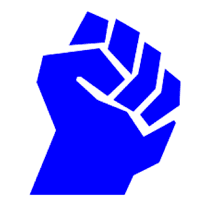Tag: Border regime
-

#endjanjaweed – eine Kampagne von SudanUprising
Die #EndJanjaweed Kampagne ist eine Initiative der Berliner Aktivist*innengruppe SudanUprising Germany, die im Januar 2019 gegründet wurde, um die Ziele der sudanesischen Revolution und die Forderungen der Protestierenden nach Freiheit, Frieden und Gerechtigkeit zu unterstützen. Das langfristige Ziel von #EndJanjaweed ist es, die unethische und unmoralische politische Unterstützung Deutschlands und der EU für Migrationskontrolle und…
-
February 6th, 2022 – Global Day of Struggle against the regime of death at our borders
6th February 2022 – MIGRATION IS A RIGHT!A Global Day of Struggle against the regime of death at our borders and to demand truth, justice and reparations for migration victims and their families! Weniger anzeigen Join us this Sunday at 2pm at Oranienplatz to remember those who have died, disappeared or been forcibly disappeared on their…
-
Commemoration rally for the deceased due to the European border regime on 15 October at Oranienplatz
GEDENKKUNDGEBUNG – COMMEMORATIONFriday, 15 October at 16:00, Oranienplatz, Berlin-Kreuzberg https://www.facebook.com/events/388215709515081?ref=newsfeed Am 15.10.2021, 16:00 Uhr, Oranienplatz, wollen wir wie jedes Jahr allen Menschen gedenken, die durch das europäische Grenzregime ihr Leben verloren haben. Kommt zahlreich, bringt gerne Blumen und eure persönlichen Gedenkmomente mit. On 15/10/2021, 16:00, Oranienplatz, we want to commemorate, as we do every year,…
-
LET THEM IN! Freitag, 24.09.2021, 18:00 Uhr, Oranienplatz
Freitag, 24.09.2021 | 18:00 Uhr | Oranienplatz 10999 Berlin Anreise: U8, Bus 248 MoritzPlatz | M29 Oranienplatz | U1, U2, U3, U8 Kottbusser Tor by Coliberation Berlin Diesen Freitag organisieren wir eine Demo, um auf die grausame Situation an der östlichen EU-Grenze (Polen) aufmerksam zu machen und dagegen zu protestieren. Kommt alle und teilt unsere…
-
Quo vadis Frontex? – Reform, control or abolish?
by Borderline – Europe Panel discussions on the illegal activities of the EU border agency and its glaring control deficit. Criticism of practices that violate human rights has accompanied the “European Border and Coast Guard Agency”, or “Frontex” – since its founding in 2004. From its involvement in illegal pushbacks to its cooperation with the…
-
Internationale Online-Reihe: Kirchenasyl und das globale Migrationsregime
vom BAG Asyl in der Kirche Die englischsprachige Ankündigung finden Sie hier Am 25. Mai, 2. Juni, 24. Juni und 18. Juni 2021 um 19:00 CET (Berlin)/ 13 p.m. EST (New York) – in englischer Sprache mit Simultanübersetzung ins Deutsche. Die Teilnahme ist kostenlos, eine Anmeldung ist jedoch erforderlich unter: info@kirchenasyl.de Auch eine Teilnahme an einzelnen Veranstaltungen ist…
-
Gedenkkundgebung für 130 Menschen, Opfer des europäischen Grenzregime im Mittelmeer, Oranienplatz, 29.April, 18.30 Uhr
Am 22. April bekommen wir, vom Alarmphone, die Nachricht, dass 130 Menschen im Mittelmeer ertrunken sind. Wir hatten die lybische und die europäischen Küstenwachen viele Stunden im Voraus informiert. Sie haben sich geweigert zu handeln. Eine Woche später wollen wir in Wut und Trauer auf die Straße gehen, um den Ertrunkenen zu gedenken. Europe, your…
-
Border Profiteers in Berlin – Brochure
von No Border Assembly // website – twitter – facebook This brochure has gathered a list of corporations that profit from deportations, from managing detention centers, from building fences, selling ships, drones or planes patrolling the Mediterranean, subcontracted security guards, providing data collection, border surveillance software, id control mechanisms, racist policy consultation, prison construction and any other form of oppression…
-
Demo Against Border Profiteers, 17. April, 14 Uhr
von No Border Assembly Every day, companies are profiting from the neocolonial and racist migration regime with its borders, surveillance and deportations. The offices and headquarters of such companies can be found right in the heart of Berlin. Nevertheless, barely anyone draws attention to that, while the German government tries to disguise and hide their…
